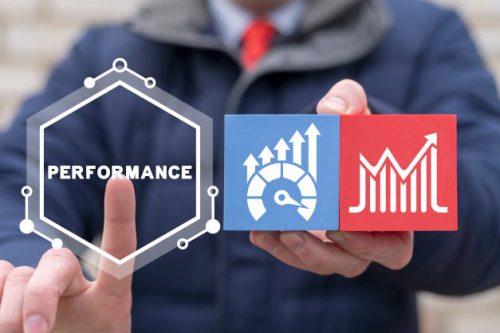 On July 1, 2022, the Italian Communications Authority (“AGCOM”) published its performance plan for the years 2022–2024 (“Performance Plan”[1]), which sets forth its strategic goals for the next three years, as well as annual targets for the actions designed to achieve those goals. It is notable that the Performance Plan sets out said strategic goals and annual targets taking into account (i) for the first time, the outcomes of a public consultation[2] and (ii) powers recently granted to the AGCOM, changes arising from transposition of several European directives into Italian law, and the digital transition goals set by the Italian National Recovery and Resilience Plan (“PNRR”).
On July 1, 2022, the Italian Communications Authority (“AGCOM”) published its performance plan for the years 2022–2024 (“Performance Plan”[1]), which sets forth its strategic goals for the next three years, as well as annual targets for the actions designed to achieve those goals. It is notable that the Performance Plan sets out said strategic goals and annual targets taking into account (i) for the first time, the outcomes of a public consultation[2] and (ii) powers recently granted to the AGCOM, changes arising from transposition of several European directives into Italian law, and the digital transition goals set by the Italian National Recovery and Resilience Plan (“PNRR”).
The Performance Plan outlines AGCOM strategic and annual goals, as follows:
- Implementing the new European provisions in an efficient and harmonious manner, consistent with national regulatory provisions.
The AGCOM shall enable the European legal system to keep up with the effects of digitalization processes on fundamental rights and competition. In light of this, the Performance Plan sets out the following annual goals, among others:
- providing guidelines setting forth new methods for identifying positions detrimental to pluralism, in light of the criteria established by Legislative Decree No. 208/2021 (“AVMS Code”);
- providing guidelines and procedures for supervisory and sanctioning activities designed to guarantee fair competition in the online ecosystem, as well as promoting fair and transparent service conditions for users, as provided by EU Regulation 1150/2019 (“P2B Regulation”);
- providing preliminary regulations about the new supervisory, sanctioning, and dispute resolution powers attributed to the AGCOM by Legislative Decrees No. 177/2021 and 181/2021, respectively transposing EU Directives 2019/790 (“Copyright Directive”) and 2019/789 (“SATCAB Directive”) into Italian law;
- strengthening AGCOM’s role in European regulatory cooperation bodies by having it take on governance roles (with specific regard to ERGA) in a bid to harmonize the new legal provisions in the audiovisual and media sector.
- Promoting a pro-competitive network regulation that supports digital economy growth, while also taking into account the goals established by the PNRR, with a view to bridging the digital divide.
The country needs uniform high-speed connectivity in all areasto make the digital transition. Annual Performance Plan goals in this area include the following:
- providing guidelines setting forth the conditions for accessing the financed infrastructure that will be applied by successful bidders in order to ensure the widest response to calls for wholesale bids to implement public plans for ultra broadband, “Italia 1 Giga” and “5G”;
- updating and implementing sector regulations (e., numbering plan, business messaging) through the Technical Committee on Communications Security to foster increased security for end users;
- implementing and calculating the indicators set forth by the European Commission to calculate the Digital Economy and Society Index (DESI), as well as including a specific section in the broadband map identifying minimum service for delivery of the Broadband Voucher II (business) to promote awareness of electronic communications technologies and services in the territory.
- Ensuring greater pro-competitive and convergent effectiveness of the regulation by reducing asymmetry between old and new players operating in the current digital ecosystem.
To regulate the digital reality, AGCOM is going to take a new approach that will be based on (i) providing common principles for all players in the current digital ecosystem and (ii) general and flexible rules more attentive to content and service usage. Annual Performance Plan goals in this area include the following:
- allowing media service providers to develop action plans designed to strengthen user access to audiovisual and radio media services, as provided by the AVMS Code;
- providing guidelines for platform providers to draft codes of conduct that extend the scope of user-protection tools to cover online video-sharing platforms. The aim is to create a level playing field among all players operating in the same ecosystem, based on new AGCOM powers in relation to video-sharing platforms.
- Protecting pluralism and constitutional rights in communications, including in the new digital ecosystem.
AGCOM will oversee the new commercial strategies in the current digital ecosystem and take action if they prove detrimental to users/consumers. At the same time, AGCOM will foster user awareness of the (i) technical/economic characteristics of the products and services that can be purchased on the market and (ii) contractual terms and legal and regulatory provisions that enshrine users’ rights. Annual Performance Plan goals in this area include the following:
- updating audiovisual content ratings to rate content harmful to minors in a uniform manner across all operators (television broadcasters, video-sharing platforms, internet service providers);
- providing a regulation pursuant to Section 41, para. 9 AVMS Code to limit dissemination of harmful content on online content-sharing platforms, as well as monitoring disseminated content to verify its compliance with the principles of pluralism and protection of human dignity, including by drafting a monitoring report;
- strengthening oversight to ensure that market transparency is sufficient in terms of competitiveness;
- identifying companies providing video-sharing platform services and setting up an ad hoc section of the Registry of Communications Operators (“ROC”) for them.
- Promoting digital literacy and culture and protecting the most vulnerable.
Digital literacy and conscious use of media are essential for countering disinformation and hate speech and mitigating any risks posed by online media use, especially to minors. Promoting digital culture may include AGCOM actions that take into account changes in public discourse and the evolving technological, social, and market context where various media operate. To this end, AGCOM shall carry out knowledge surveys, collaborate with the research community, and participate in policy debate at the European level. Additionally, since online information consumption is increasingly taking place through algorithmic sources (such as search engines and social networks), the protection of pluralism ensured by AGCOM should include transparency when it comes to algorithmic decisions. Annual Performance Plan goals in this area include the following:
- embracing communication initiatives designed to promote lawfulness online and provide “digital citizenship” education to counter dissemination of illegal content on the Internet and prevent related risks;
- overseeing the consistency and uniformity of AGCOM actions to ensure pluralism in the new digital ecosystem and increase protection of online legality;
- strengthening activities surrounding consumer digital literacy on transparency, contracts, withdrawal rights, and electronic communication service features in cooperation with the Ministry of Economic Development.
- Strengthening the economy, effectiveness, efficiency, and transparency of administrative action, including by monitoring compliance with proceeding timeframes.
AGCOM economic management shall be made more efficient. Moreover, AGCOM shall develop “digital administration” services and complete the dematerialization process for information and documents. Annual Performance Plan goals in this area include the following:
- reviewing the regulations and specific supervisory activities related to audiovisual commercial communications, bringing them in line with the new regulations on advertising crowding limits;
- providing measures to implement methods for calculation and payment of the contribution due to AGCOM from players operating in the new sectors by coordinating them with those already in force and possibly by introducing a unique contribution form for all regulated sectors.
- Simplifying the AGCOM regulatory framework for users, the market, and increased internal efficiency, including by drafting a unitary code setting forth consumer and user protection rules.
Annual Performance Plan goals in this area include the following:
- reviewing the regulatory framework for the protection of end users and quality of services with an eye to streamlining it. This should take place before a unitary code is drafted.
[1] Annex A to AGCOM Resolution No. 225/22/CONS.
[2] Public consultation was launched on January 13, 2022, through AGCOM Resolution 4/22/CONS.


